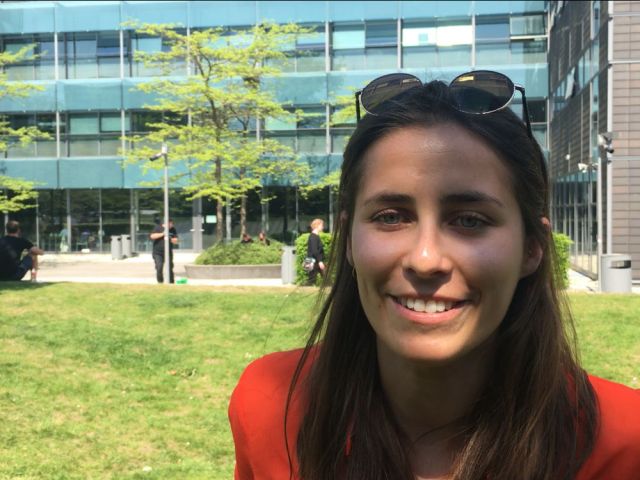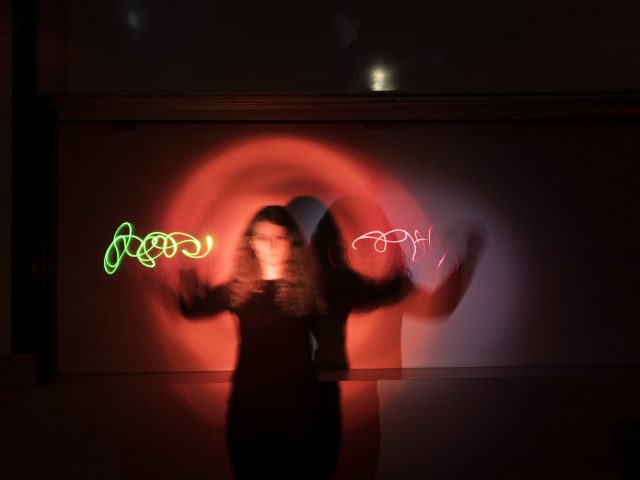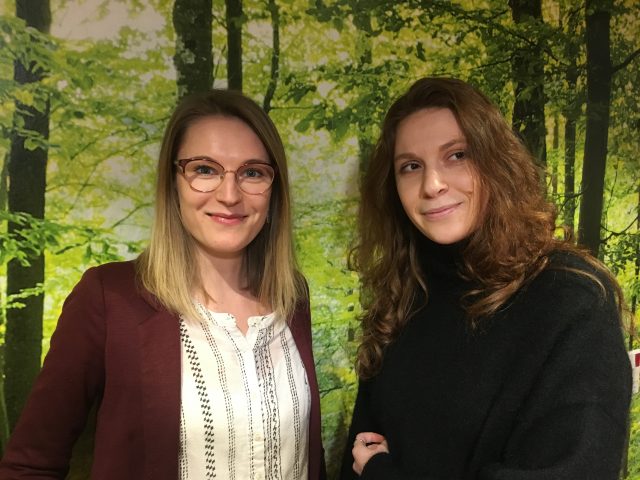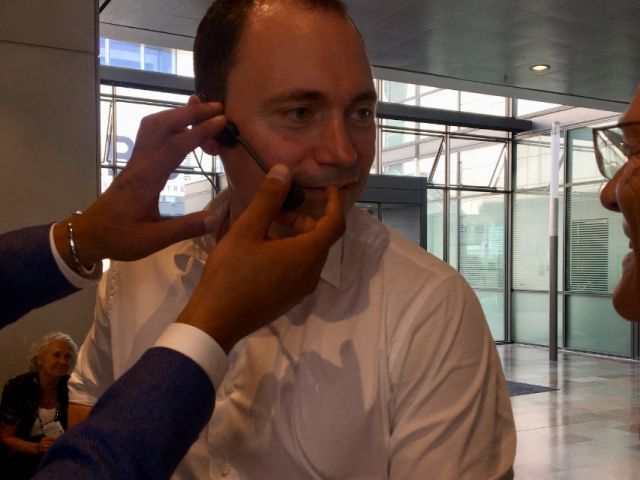Feedback: From worst in class to lots of initiatives

CBS is worst in class when it comes to giving sufficient feedback to the students. To make up for this, a pilot project with the aim of giving selected students more feedback, in the form of quizzes, click tests, and Q&A sessions, has been running for the past year. A professor of feedback asks that CBS remembers to look at feedback in a broader sense.
Extra hours for supervision. Click tests. Kahoot sessions. Q&A sessions. Written feedback.
The past year, students from the programs BSc in International Business, (IB) MSc in Human Resource Management (HRM), and the MSc in Applied Economics and Finance (AEF) have gotten more feedback of various kinds, as part of a pilot project initiated by CBS Students and the Dean’s Office for Education at CBS.
“We have, for a long time, asked the study boards and the teachers to give the students more feedback, as it has been a great wish from the students. But it seemed that more structural changes were needed. That’s partly why the pilot project was initiated,” says Jeppe Ask Tofteskov, President of CBS Students.
In March 2017, a survey involving 120,000 students in Denmark showed that CBS came in last out of the eight Danish universities, when it comes to giving the students sufficient feedback. The results combined with the engagement from CBS Students, and a continuous dialogue about giving the students more feedback caused the Dean’s Office for Education to establish a feedback-group in the spring of 2017. The objective of the group is to come up with ideas on how to give the students more feedback.
When I give feedback, I see a greater interest from the students.
Battista Severgnini, Associate Professor
The work in the feedback-group resulted in the pilot project, which not only aims to give the students more feedback, but also to investigate what forms of feedback work, which ones do not, and to start a discussion on what feedback is all about.
“I encourage and admire all the ways currently being tried to include sophisticated, intense and continuous forms of assessment into the learning at CBS. The methods may not work for every course and subject, but that’s worth finding out, and my colleagues at IBM, HRM and AEF have my full support,” says Gregor Halff, the Dean of Education.
In total, 11 courses divided in the three programs have dedicated more of the teaching time to feedback sessions, and the goal is to implement the idea in more courses, explains Jeppe Ask Tofteskov and adds that the goal has not been decided on yet.
“Feedback crucial, as it is a cornerstone of good teaching and it will improve student satisfaction with studying at CBS. Which is of course a win-win for both the students and for CBS,” he says.
Feedback is not just for the students
The three programs have been chosen for the pilot project because they were ranked among the lower half in student satisfaction regarding giving feedback at CBS.
From there, 20 courses have been selected to be part of the project and the teachers of the courses have had more or less a free hand in coming up with ways to give more feedback, apart from extending their office hours.
Continuous assessment is sufficient when it builds a stairway to a student’s growth
Gregor Halff, Dean of Education
At AEF, they have done two things: Made room for Q&A sessions at the end of courses, and created pre-courses in mathematics and statistic, so that the students can brush up on their mathematics skills before beginning their master’s program.
“Some students feel unprepared and are anxious about the level of mathematics needed for the master’s program. That is why we have made the pre-courses as a service for those students, so that they can brush up on their knowledge,” says Battista Severgnini, who is an associate professor at the Department of Economics that teaches applied econometrics to MSc in Applied Economics and Finance students, and adds that the students have had the chance to contact the brush up teacher throughout the whole semester if they were in doubt about anything related to mathematics and/or statistics.
According to Battista Severgnini, the students seem to be satisfied with both the pre-courses and the Q&A sessions. But in order to figure out what really works, the students will be asked to evaluate the different initiatives, which might be changed for the coming semester if needed.
It is, however, not only the students who get something out of the extra feedback. Battista Severgnini notes that the students are far more engaged and interested in topics that are not necessarily directly linked to exams when they are given more time for feedback.
“When I give feedback, I see a greater interest from the students. For example, they tend to come up with more creative ideas for their bachelor and master projects because we have more time to discuss, what they have learned during a course,” he says.
Nirvana-like feedback
Peter Holdt Christensen, Associate Professor of knowledge sharing at the Department of Management, Politics, and Philosophy at CBS, has done various studies on feedback, and the main aim of giving feedback is to motivate the receiver.
“Good feedback teaches you something and motivates you to learn more,” he says.
But in order to get the most out of the feedback, it needs to be done in a timely manner.
“Any kind of delay in the feedback is bad for the outcome. So, the best is to give it right after the finishing of a project or handing in of an assignment,” he says.
Some teachers at CBS, including Peter Holdt Christensen, are running different kinds of feedback programs. But what seems to be the dream scenario for just about every student and teacher is to have the time to do face-to-face feedback. However, when you are running a course with 160 students, this becomes close to impossible. Still, it is worth striving for, says Peter Holdt Christensen.

“Face-to-face feedback is extensive, as you have the possibility to engage in a discussion about agreements and disagreements. This situation is Nirvana-like. We could get there if we had smaller classes. So, instead of having one class of 50 students, we could strive for two classes of 25 students,” he says.
Learning vs. performance
However, it is one thing to ask the teachers to give more feedback, and another to give the right kind of feedback to the right students.
Peter Holdt Christensen is currently analyzing data from two surveys made among the students studying the MSc in International Marketing and Management (IMM). In the two surveys, he asked students about what the feedback means to them, measured various important elements related to feedback, and what they think about the feedback they received during the semester. The reason for this is to understand how the students perceive the feedback given at CBS. (Fact box.)
He points out that the initiatives at CBS are good, but if they are being done without the knowledge of what the students are in need of, it can be a waste of time.
“Some students are not interested in feedback at all, while others cherish it. It is important to remember that not everyone is alike. I know that students ask for more feedback, but I think it is worth investigating what the students actually want, instead of just assuming that the students need feedback related to only their exams,” he says.

Peter Holdt Christensen explains that there are two kinds of feedback. The one that focuses on performance and the one that focuses on learning. At CBS, the students and the teachers tend to go for performance-based feedback. But feedback has broader potential, argues Peter Holdt Christensen.
“Feedback could be about much more than just telling the students why they have got the grade they did. It could be feedback on how to read an academic paper or how to search for the right material for an assignment. It should give them a basic understanding of how to learn. And that serves as motivation for wanting to do better,” he says.
Furthermore, he thinks that if CBS wants to go all in on giving more feedback, the teachers giving it, should also be taught how to do it.
“It’s one thing to give funding for feedback initiatives, but the funding could also be spent on teaching the teachers how to give feedback so that they do it in an appreciative way that doesn’t cause misunderstandings,” he says.
“Elevators are useless”
Right now, the feedback-group who has initiated the pilot project is looking through the evaluations made by the students and will, together with the Senior Management, discuss the future of the project, which will focus on continuous assessment.
“We all have a genuine need to connect during teaching and learning. But the simplistic word, ‘feedback’, doesn’t even come close to describing that connection. It’s something much more important: the ability to relate, nurture and grow,” says Gregor Halff and continues:
“I’m glad we’re starting to talk about ‘continuous assessment’ instead – a better term for a deeper issue: how do we design a course or any learning experience – so that multiple assessment loops take place and the learner grows continuously? This is hard because it requires rethinking – and sometimes more work – on both sides of the classroom.”
He sees continuous assessment as a way to strengthening the student’s growth during their studies, but it also requires something from the student.
“Continuous assessment is sufficient when it builds a stairway to a student’s growth. But the student must also be ready to walk the stairs. Elevators are useless here,” he says.







































































































































Comments